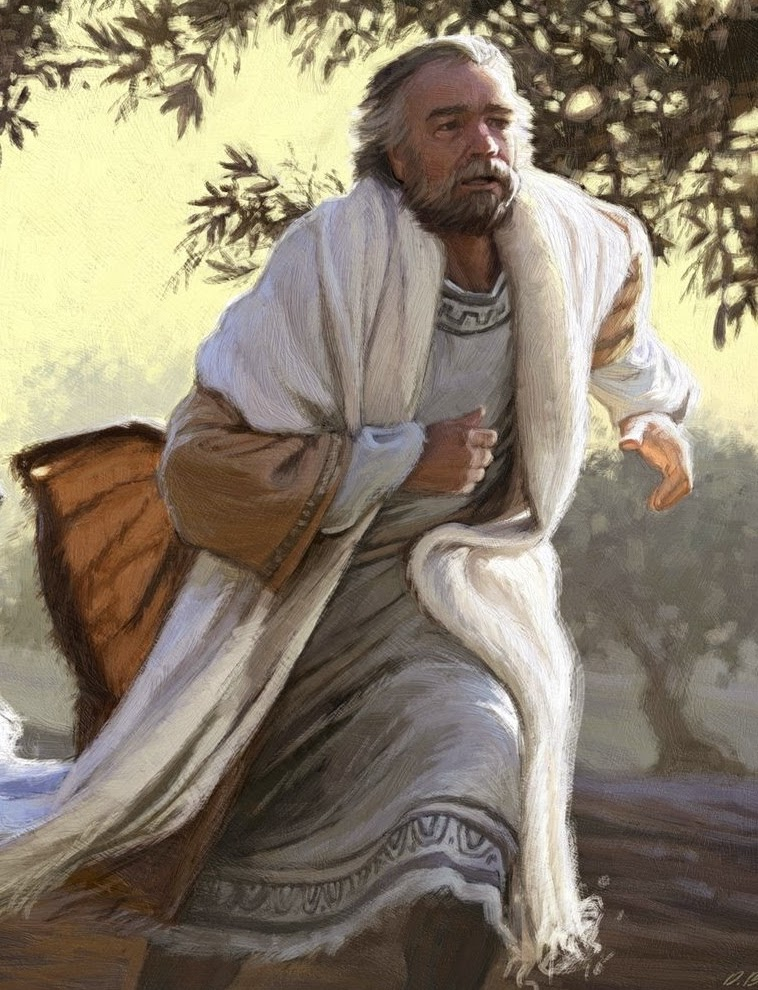
If I were asked to describe the Bible in just a few words, after ho-humming for a bit (because I’m definitely not an individual who can do “few words”), I’d probably land on two: love story.
The Bible is a love story from cover to cover.
There is no question it is God’s story of His redemptive love for me (yes, you, as well).
I know it takes twists and turns; allows us to stand on heights and drops us in the depths of despair; causes us confusion, yet more frequently settles our souls; but, it will always take us back to “Jesus loves me, this I know.”
At the end of the day, God’s Holy Word is a tapestry of HESED (steadfast love, lovingkindness, faithfulness, mercy, slow-to-anger-ness and grace), woven with incredible colors and creating a design uniquely fitted to each one of His children.
Of all the 66 books of the Bible, there is one little story that EXEMPLIFIES to me God’s sweet love.
This particular story is found in the middle of the book of Luke (ch 15) – a parable Jesus told.
Someone once explained to me that a parable acts like a welcoming structure (i.e. a “home”) into which you are invited, where you can sit on the floor, and enter, not just a story, but an experience.
That’s how I feel each time I read the Parable of the Prodigal (wasteful, reckless) Son.

Photo courtesy of Shutterstock
XXXXXXX
Let’s review.
A dad has two sons. By Mosaic law, the older son gets 2/3 of the inheritance upon the father’s death, and the younger gets 1/3. This was indisputable.
However, the younger son, wishing for “something more” to life, and wanting to “do his own thing,” finding himself totally unsatisfied in the Father’s love, and desirous to “get out from under the father’s thumb,” hatches a devastating plan.
It’s a plan that assumes he knows what is best for his life, but he doesn’t have the money he needs to put it into play.
Quite hard-heartedly, this young son comes to the father, and out of the blue, basically says to the dad, “I wish you were dead! Then I could have my inheritance.”
Now, he didn’t say it in those words, but those are the words Father heard, because there was no feasible way the younger boy could have the money, unless his dad died.
We don’t hear a word from the Father’s mouth, as he gets the money, gives it to his son, and tearfully waves him on down the road.
So, the boy journeys to a “far country.”
It’s not necessarily far in distance, but far from the father’s oversight, and, definitely into Gentile country (there are pigs in this story).
After squandering his inheritance in reckless living (we can only imagine), a famine hits the land, and the boy ends up basically working as a slave, slopping pigs… HE’S SO HUNGRY, HE’D EVEN EAT THE PIGS FOOD (truth is – he couldn’t eat their food, ’cause our stomachs aren’t made to digest the pods the pigs were eating).
This tells us just how far this well-to-do-Jewish-boy has fallen!
(P.S. The story of the prodigal is also a story that nothing ever satisfies us like the Father’s love – what are we thinking when we are attracted to the “something-more” life offers?)
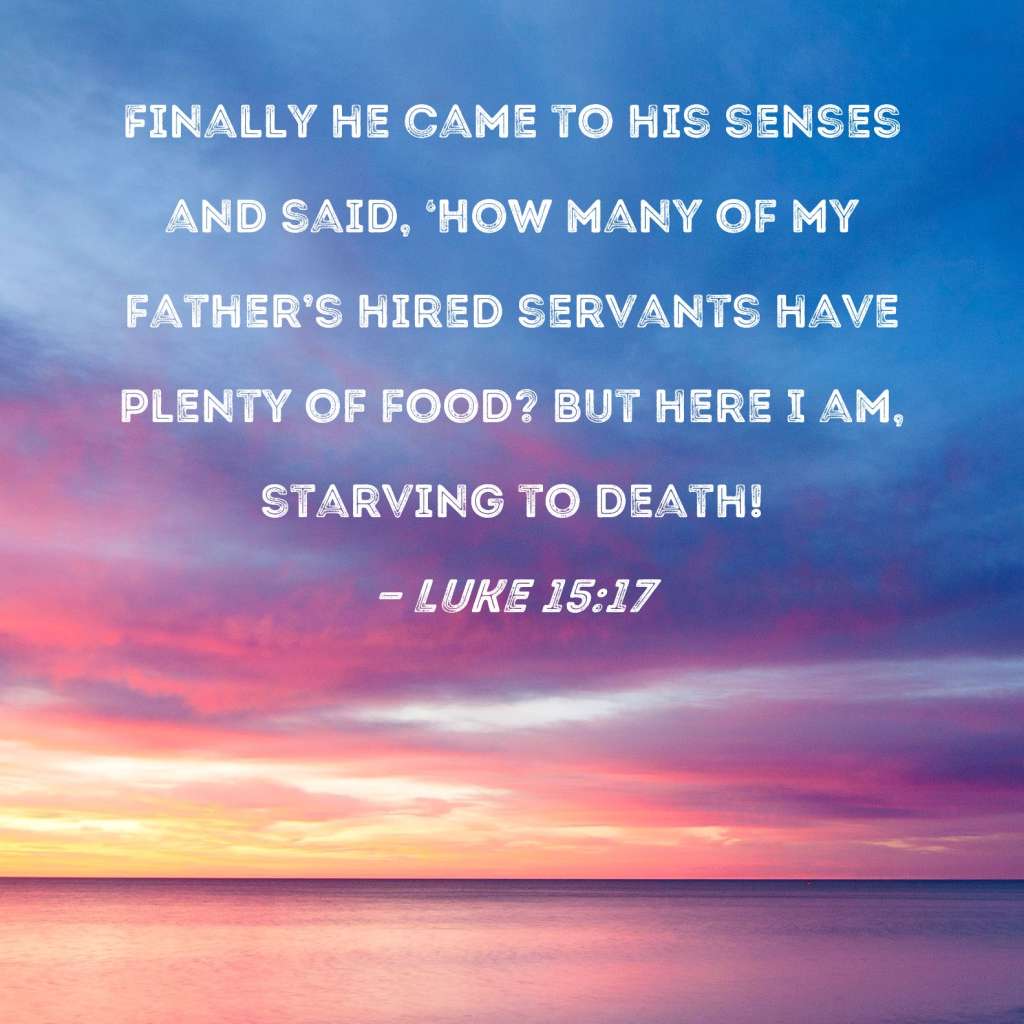
However, there in the muck and the yuck of the pig pen, the boy REMEMBERS…
He remembers the KINDNESS (the HESED) of his father, even towards the servants.
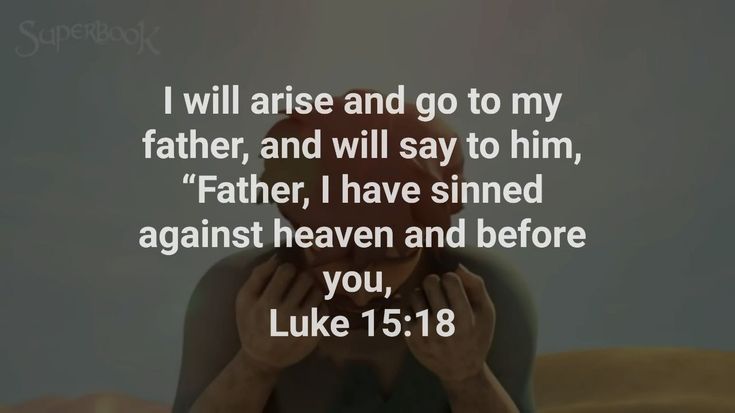
It doesn’t take him long to go from A to Z…
“I could work for my father! Oh…but, I’m definitely not even worthy to be treated as a servant…Yet, perhaps there is a place for me…”
So, he heads home practicing his speech the entire way.
Meanwhile, Daddy daily looks down the road for his boy.
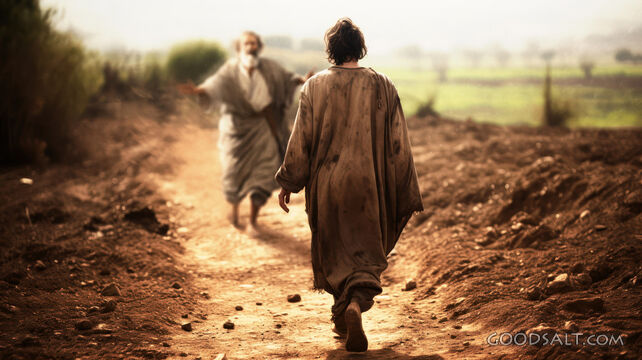
In the deep grief of his heart, he has watched and prayed for the young man’s return.
AND, THEN ONE DAY…
In the distance, the dad sees a bleep on the horizon; knows without question it’s his son.
The boy, with head hanging, and a speech on his tongue, begins the walk down the road toward home.
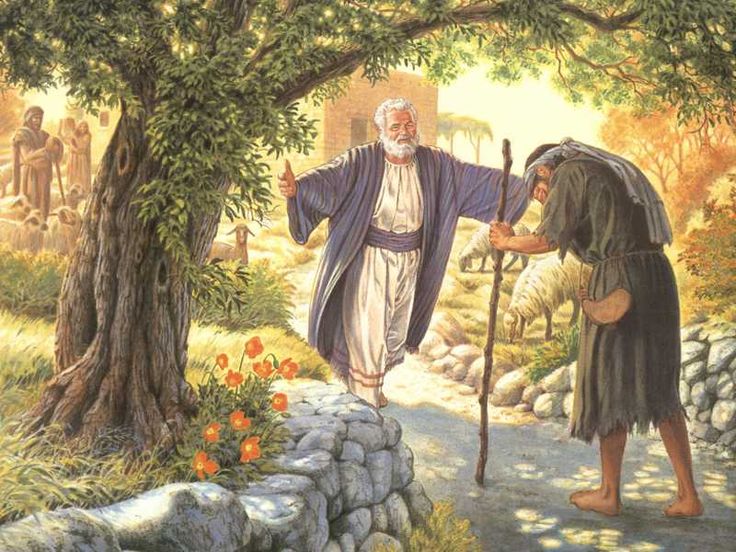
Each step on the familiar pathway is agonizing, humiliating, and filled with guilt.
There is nothing joyful about the return for him…but, if he is going to reconcile with his father enough to get a job that will fill his stomach, he must walk this walk of shame!
He must return back to where he started from and seek forgiveness.
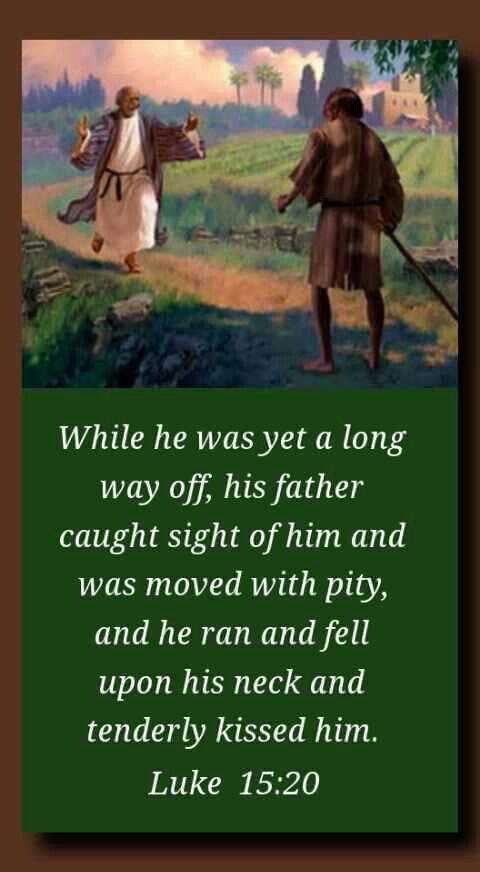
Herein is the beauty of this story.
The Father doesn’t even let him walk it.
The Father picks up his garments and runs toward the end of the road —- remember old, wealthy Jewish men DO NOT RUN; but, run this daddy does and throws his arms around his son in an embrace of HESED.
Before our “prodigal” can finish his speech, the Father has kissed him, wrapped him in his best robe, put shoes on his feet, a ring on his finger, and planned a party of celebration.
DAD has welcomed his boy back into the family.
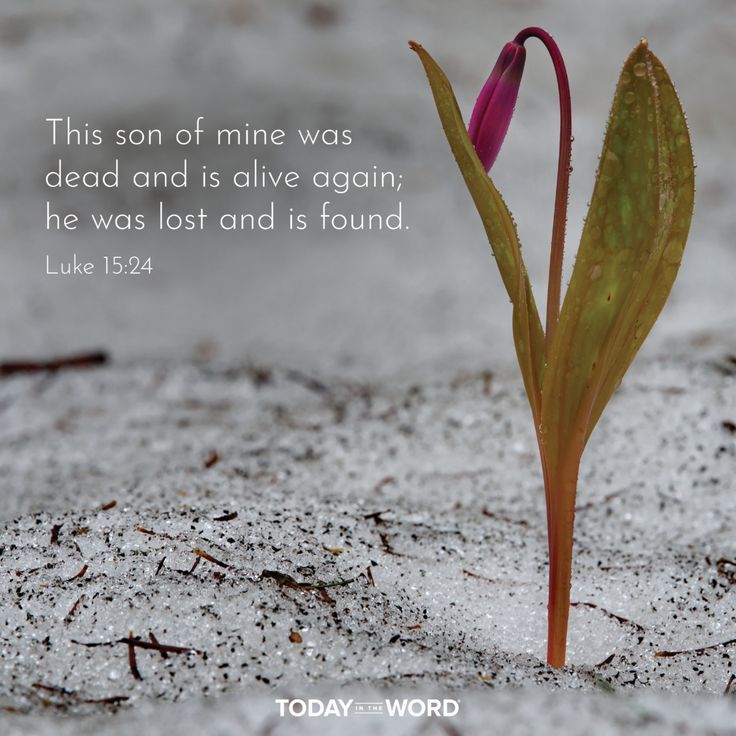
There’s more to the story – the other son – but this is it for today.
Here is what I hear:
We are all prodigal (wasteful, reckless) people, prone to wander, prone to think we know better, worried there is more outside the will of the father, and fearful we are going to miss out (BIG TIME FOMO).
Our Heavenly Father matches us prodigal-ness for prodigal-ness. He’s willing to be just as wasteful, extravagant, and reckless in pouring out His love on us, lavishing us with the riches of His grace.
When we wander off, The Lord watches for our return and never stops. And, sometimes, as in the case of the rest of the lost things Jesus talks about in this chapter, He even goes looking. This is a reminder that depending on our situation, God runs toward us, chases after us, or stands and waits for us; BUT GOD always has His eyes on us!
His love never fails.

He is always for us, longing for us, jealous for us.
We deserve the walk of shame.
Instead, he runs to us, to cover our shame with His HESED (it is all-consuming).

We don’t deserve it.
He gives it anyway.
Oh to grace, how great a debtor / Daily, I’m constrained to be / Let Thy Goodness like a fetter, bind my wandering heart to Thee.
Prone to wander, Lord I feel it / Prone to leave the God I love / Here’s my heart, Lord, take and seal it / Seal it for Thy courts above.
-Come Thou Fount of Every Blessing-
Robert Robinson
Oh, the magnificent, mysterious, magnetic HESED of God!

It is always, always, always FOR US…
And will ever be Beyond Words!

